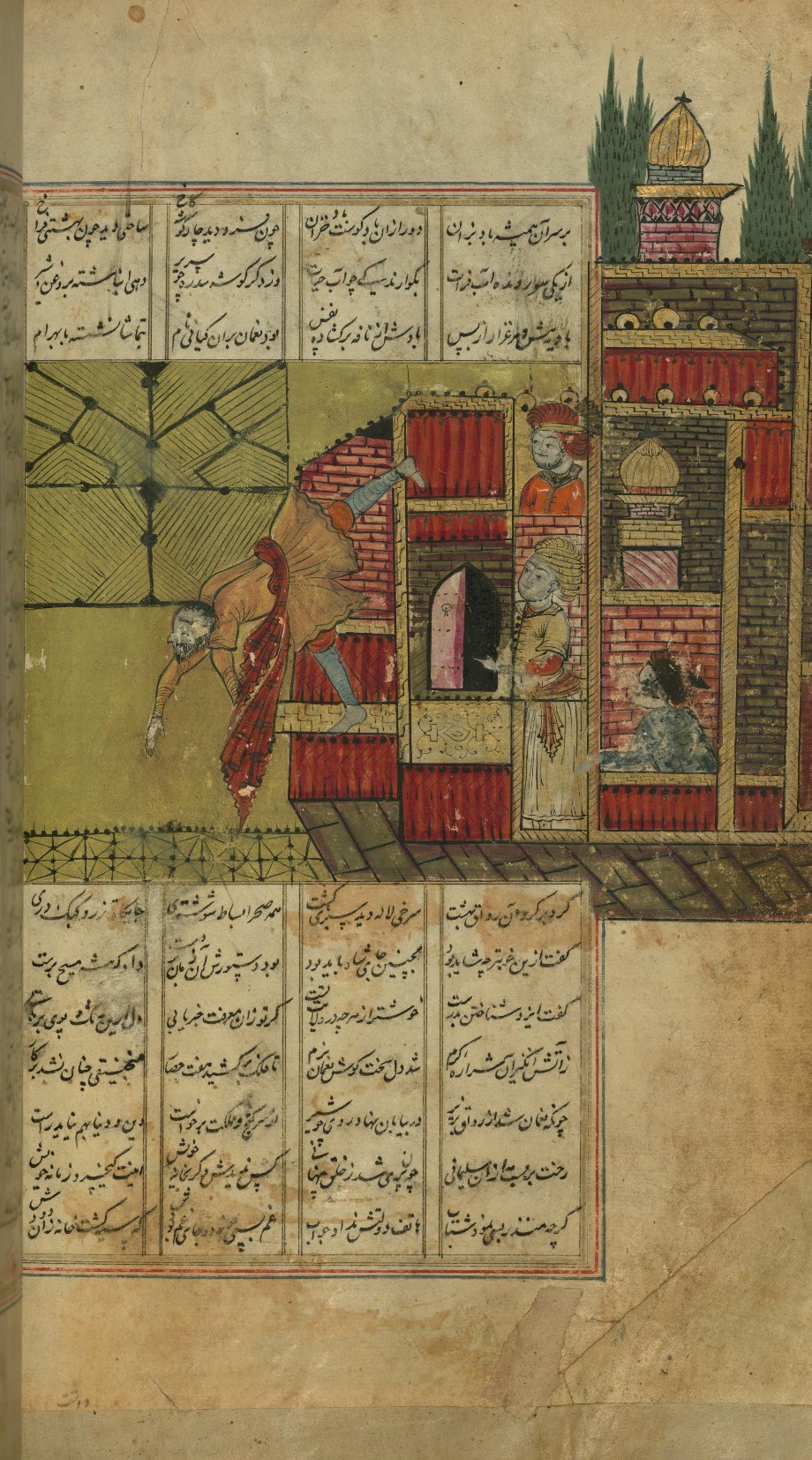Cenmar on:
[Wikipedia]
[Google]
[Amazon]
 Senemar or Sanamar (pronounced "Senemar" in
Senemar or Sanamar (pronounced "Senemar" in
 Senemar or Sanamar (pronounced "Senemar" in
Senemar or Sanamar (pronounced "Senemar" in Arabic
Arabic (, ' ; , ' or ) is a Semitic languages, Semitic language spoken primarily across the Arab world.Semitic languages: an international handbook / edited by Stefan Weninger; in collaboration with Geoffrey Khan, Michael P. Streck, Janet C ...
: سنمار) was a Byzantine
The Byzantine Empire, also referred to as the Eastern Roman Empire or Byzantium, was the continuation of the Roman Empire primarily in its eastern provinces during Late Antiquity and the Middle Ages, when its capital city was Constantinopl ...
architect
An architect is a person who plans, designs and oversees the construction of buildings. To practice architecture means to provide services in connection with the design of buildings and the space within the site surrounding the buildings that h ...
who was requested by the Lakhmid
The Lakhmids ( ar, اللخميون, translit=al-Laḫmiyyūn) referred to in Arabic as al-Manādhirah (, romanized as: ) or Banu Lakhm (, romanized as: ) was an Arabs, Arab kingdom in Sawad , Southern Iraq and Eastern Arabia, with al-Hirah as ...
king Al-Nu'man I ibn Imru al-Qays to build the most beautiful palace of the Sasanian Empire
The Sasanian () or Sassanid Empire, officially known as the Empire of Iranians (, ) and also referred to by historians as the Neo-Persian Empire, was the History of Iran, last Iranian empire before the early Muslim conquests of the 7th-8th cen ...
.
After 20 years, Senemar finished building the palace, named Khawarnaq (Arabic: الخورنق), and invited the king to see it. It was a real piece of art. After a small discussion between the two, Senemar told the king two things: the first was about a brick within the palace that would cause the whole construction to collapse if moved, and that he was the only one to know where it lies; the second was that he could build a palace that moved with the sunlight wherever it went. The king, who became afraid of Senemar's knowledge of the brick and jealous he might build a bigger and more beautiful palace for another king, ordered his guardians to kill Senemar by throwing him off the palace down to the ground.
" Senemar's compensation" or "Senemar's Reward" is used proverb
A proverb (from la, proverbium) is a simple and insightful, traditional saying that expresses a perceived truth based on common sense or experience. Proverbs are often metaphorical and use formulaic speech, formulaic language. A proverbial phra ...
ially in Persian
Persian may refer to:
* People and things from Iran, historically called ''Persia'' in the English language
** Persians, the majority ethnic group in Iran, not to be conflated with the Iranic peoples
** Persian language, an Iranian language of the ...
and Arabic
Arabic (, ' ; , ' or ) is a Semitic languages, Semitic language spoken primarily across the Arab world.Semitic languages: an international handbook / edited by Stefan Weninger; in collaboration with Geoffrey Khan, Michael P. Streck, Janet C ...
to refer to a situation where on does good work but is instead punished or given an unfair or too small reward.
References